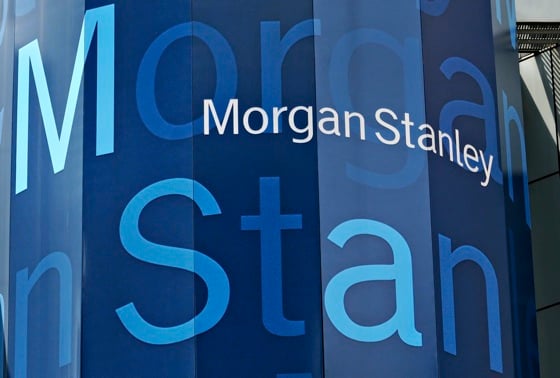Stock regains some ground, but still trading at under $13; ratings cut looms
Morgan Stanley Ticker:(MS), owner of the world's largest brokerage, sank to its lowest closing price since December 2008 as investors weighed a potential credit-rating cut, Europe's debt crisis and lower trading revenue.
Morgan Stanley fell 37 cents, or 2.9 percent, to $12.36 at 4 p.m. in New York, its third decline of more than 2 percent in the past four trading days. That's the lowest since Dec. 2, 2008, less than three months after the collapse of Lehman Brothers Holdings Inc. roiled global markets.
On Tuesday, the stock regained some ground, rising as high as $12.94. As of 12:15 EST, though, the share price had fallen to $12.75.
Moody's Investors Service may reduce Morgan Stanley's credit ratings by as many as three levels, the most among U.S. lenders. The cut could force the firm to post added collateral and pay more to borrow. Ed Najarian, an analyst at International Strategy & Investment Group Inc., said in a note yesterday that the firm's fixed-income trading revenue probably will drop by half in the second quarter as risk-averse clients pull back.
“The fragility has a lot to do with the lack of their core funding structure,” Charles Peabody, an analyst with Portales Partners LLC, said in an interview today on the “Bloomberg Surveillance” radio program. “They don't have the same core deposit base that a Bank of America or a Citigroup or even a JPMorgan might have. I think it also has to do with where the franchise is in its evolution. They're still very much in a transition phase.”
Sliding Value
The shares of New York-based Morgan Stanley are now trading at 45 percent of tangible book value, the lowest among the six largest U.S. banks and a level that Chief Executive Officer James Gorman described as “inexplicable” last month.
Tangible book value measures the theoretical liquidation value of a firm that excludes assets such as brand names that would be worth little or nothing if a company went out of business. Morgan Stanley has traded below its total book value for more than two years.
Najarian cut his price target for the shares to $15 from $18 and maintained his “hold” rating. Peabody said today that he had previously said Morgan Stanley may slide to as low as $12.
“We're there,” said Peabody, who rates the stock “sector perform.” “Could we go lower than $12? Maybe temporarily, but generally speaking with the financials, I'm getting closer to thinking we're reaching some kind of trading bottom.”
‘Negative Outcome'
The cost to protect Morgan Stanley's debt for five years climbed 4.1 basis points to 453.2 basis points, the highest in more than two weeks. A basis point is one-hundredth of a percentage point.
UBS AG analysts led by Brennan Hawken said in a note to investors last month that Morgan Stanley's valuation reflects “a very negative outcome” to the European debt crisis and that the shares should trade between 60 percent and 70 percent of adjusted tangible book value. Susquehanna Financial Group's Doug Sipkin wrote that a three-level downgrade is more than priced in to the stock.
Morgan Stanley has plenty of liquid assets to cover collateral calls resulting from a potential Moody's downgrade, which the ratings company has said will come by the end of the month, Peabody said today. The cut may crimp revenue from long- dated derivatives in the firm's fixed-income trading business, he said.
Stock Swings
Today's close is lower than in October 2011, when swings in the stock price prompted Mitsubishi UFJ Financial Group Inc. (8306), the company's biggest shareholder, to put out a statement saying it was “firmly committed” to its alliance with Morgan Stanley. The stock sold for as little as $11.58 intraday on Oct. 4.
Gorman also sent a memo to employees on Oct. 3, urging them to remain focused on their jobs and clients instead of responding to “the rumor of the day.”
On Dec. 2, 2008, the last time Morgan Stanley's shares closed at a level below today's, the firm borrowed $20.9 billion from the Federal Reserve's emergency lending facilities, according to data compiled by Bloomberg.
Mary Claire Delaney, a spokeswoman for the New York-based company, declined to comment.
--Bloomberg News--







